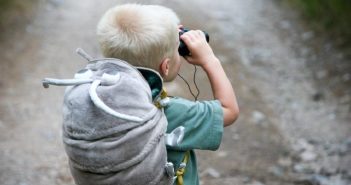

A case study by a three-member team of Notre Dame MBA students at the Mendoza College of Business won the second prize at the 15th Annual Arthur W. Page Society Case Writing Competition.
The Study on the 2014 cyber attack on Sony Pictures by North Korea was an assignment undertaken by Meredith Alexander, Kelly Chase and Ashley Chase. They were attending the Corporate Communication course at the Fanning Center for Business Communication. The case study was titled “Sony Pictures Entertainment, Inc.: A Cyber Security Attack from North Korea.”
Since 1990, students at Notre Dame had been researching and publishing more than 300 business case studies as part of the course. The course is taught by James S. O’Rourke, IV, Teaching Professor of Management, Arthur F. and Mary J. O’Neil, Director of the Fanning Center for Business Communication.
“These aren’t just simple research papers. Every case study is rooted in empirical research and empirical evidence for the purpose of beginning a classroom discussion about the case—there is no room for conjecture or anecdotal research,” O’Rourke said.
The team started working on the case just a few weeks after Sony announced the cyber attack that resulted in an embarrassing leak of emails.
“The fact that the cyber-attack was not only able to disrupt Sony’s email communications, but that it also forced Sony to immediately pull its movie ‘The Interview’ from U.S. theaters was completely unprecedented,” Alexander said.
“The Sony cybersecurity attack highlighted the global and technological risks that all businesses face today. By publishing a case study that delved into the ‘how’s’ and ‘whys’ of the attack, our research could help other companies protect their data from similar attacks in the future,” Ashley Chase said.
The courses at the Fanning Center are aimed at providing students expertise in critical thinking, writing, conflict resolution, persuasion, interviewing and media management. These are especially applicable to MBA students interested in fields such as investor relations, corporate communications, public speaking, intercultural communication and corporate writing.
All of these skills are put to the test when it comes to producing a case study worthy of publishing.
Along with the wealth of resources available to them in Mendoza’s Mahaffey Business Library, teams have access to proprietary sources, such as Bloomberg and Economist databases, as well as reliable news organizations, wire services, public records databases, press releases, investment publications and the trade press—“essentially any resource that has the potential to affect a company’s public stock price,” O’Rourke said.
“Due to the magnitude of the attack and the industry, we collected information from a variety of outlets, ranging from company press reports to lawsuits and in-depth news briefs,”Ashley Chase said.
“We then structured our case and looked for gaps in our knowledge requiring additional interviews and research,” she added.
“The hardest part of the process was getting first-hand accounts from Sony employees because the situation was so fresh…But we just kept trying,” Alexander said.
Under such circumstances, O’Rourke usually steps in to try to establish a link between the students and the corporations they are trying to study.
“I’ve encountered executives who take a very personal interest in the case study because they want the students to have a positive perception of their brand. And I’ve had times where a CEO thinks his or her company is too ‘big’ to participate in what they perceive as a simple ‘Schoolhouse writing assignment,’ and that’s fine, too,” he said.
The aim is to get someone to comment on the record, even if it is a competitor or peer company, he added.
Six and a half weeks after they first declared their case topic and after weeks of interview and research verification and fact checking, the team put their case study together.
O’Rourke gave the case one final edit, then applied the ND trademark, the authors’ names and the copyright statement. The case was official, and it was added to the Fanning Center’s list of current cases and listed on ND Marketplace for purchase.
Several peer institutions — the Darden School of Business at the University of Virginia, Dartmouth’s Tuck School of Business and the Wharton School of the University of Pennsylvania — purchase the case studies on a regular basis. However, O’Rourke said the true purpose of putting the cases on the market is to share the thought leadership of the students enrolled in Mendoza.
After they handed in the final case study and passed the Corporate Communication class, Ashley, Kelly and Meredith thought they were finished with the Sony study. However, O’Rourke submitted their case to the Arthur W. Page Society Case Writing Competition in Corporate Communication.
In March 2016, it earned Second Place in the Business Schools Category of the 15th Annual Arthur W. Page Society Case Writing Competition.
The team shared a $1,500 cash award from the Society, along with permanent recognition in the Page Society’s archives.
The Grand Prize winner was the team comprising Megan Cauley, Chelsea Michael and Lizmarie Orengo from DePaul University College of Communication for an analysis of Starbucks’ ‘Race Together Initiative’ launched by the company in spring 2015 in response to racial issues in the United States.
The Arthur W. Page Society is a select-member association comprising the chief communication officers of the Fortune 500, the CEOs of the largest communication consulting agencies in the world and a select number of academics who teach, research and write in the field of Corporate Communication.
The University of Notre Dame has won the Page Society’s Grand Prize four times in 15 years—more than any other university or college.